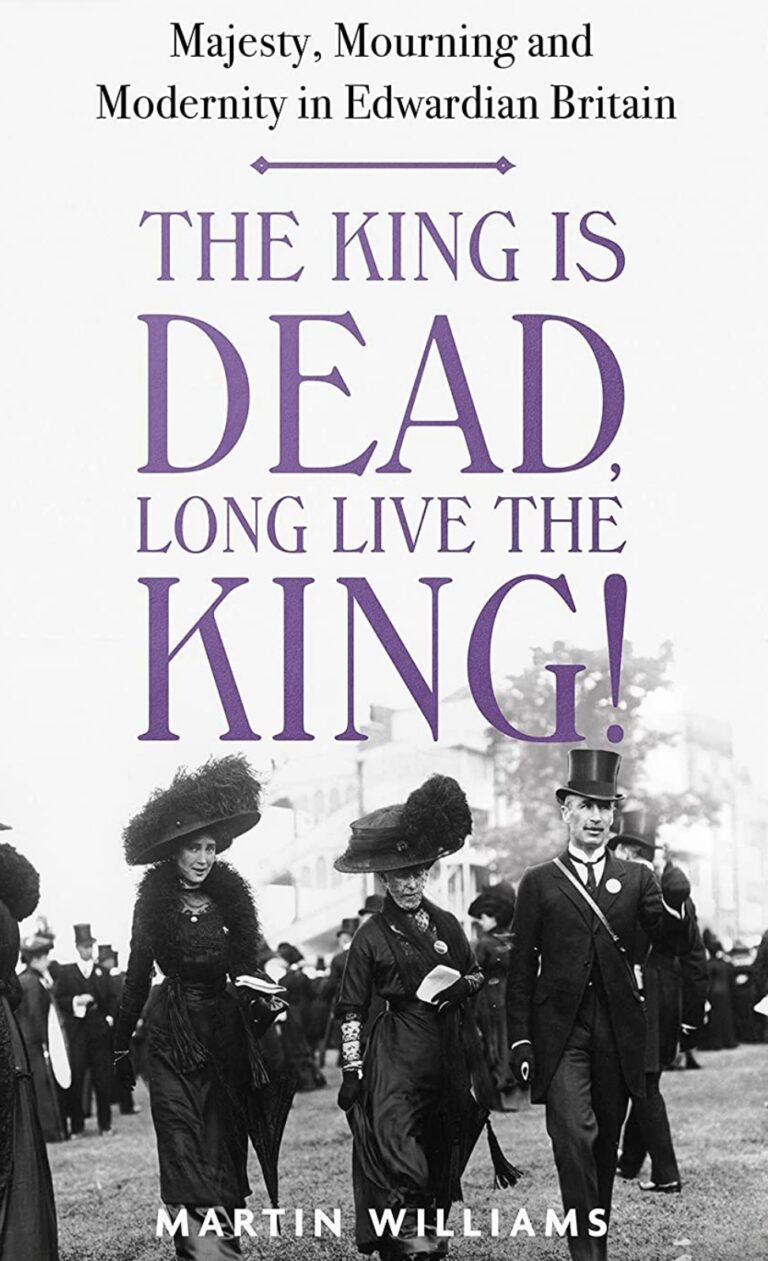At the start of the last century, England’s longest-reigning monarch died. At the end of the last century, we still wore black as part of our uniform at my school. Supposedly we were grieving for Queen Victoria. That probably says something about Harrow School, but it also says something about the country. When a good monarch dies, people are really bereft.
As would happen again after the death of Elizabeth II, when Victoria died there were fears that her successor wouldn’t be up to the job. Edward VII was seen as feckless. He had mistresses. He ate and drank too much. He was addicted to racing. Yet as Martin Williams shows in this dapper and adroitly written book, the new King knocked it out of the park.
How did he do it? By working hard, for one thing. A friend, Lord Redesdale, recalled an evening at the end of which, after brandy and cigars, the King pointed to a box of official papers and said, “I must set to work.” “Surely,” Redesdale remonstrated, “Your Majesty is not going to tackle all that work tonight?” “I must,” Edward smiled. “Besides, it is all so interesting.”
Most importantly, Edward liked people, which meant he was liked in return. He liked dogs, too, which is a sure shortcut to the hearts of the English. His wire-haired fox terrier, Caesar, was one of the most pampered pets ever. The jeweller Karl Fabergé made a little model of him in calchedony with rubies for eyes. The model, and Caesar himself, wore a gold collar bearing the words, “I belong to the King.” Only Edward’s wife, Queen Alexandra, disliked the dog. Her Majesty doesn’t come out of the book well. It’s hard to forgive her for having it in for Caesar.
All this has been told before, but Williams—a journalist, art historian, and first-time author—tells it so skilfully, and with such silken prose, that it’s a pleasure to spend the time inside his head. As well as Edward’s story, we get the contemporary tales of political reforms; of the Suffragette movement, which the King deplored; of the pranks and preening of the Bloomsbury Group; of Dr Crippen, the nondescript little man who murdered his wife and fled to America, only to be arrested on arrival; and of whatever else the author feels like.
The organising principle, though, is what a terrific monarch Edward made, much to everyone’s amazement, and how very sad everyone was when he died of excess in 1910.
At his death bed in Buckingham Palace, his latest mistress, the lovely Mrs Keppel, abandoned her legendary discretion and lost all control. “What is to become of me?” she sobbed. Then more than once she wailed, “There was never anything wrong between us!” thereby making it pretty clear to everyone present, including the servants, that the opposite was the case.
Trotting behind the King’s coffin, as it made its way from Westminster Hall to Windsor, Caesar became a star. A German company named Steiff made a killing out of soft toy Caesars. The Illustrated London News commissioned the artist Maud Earl to paint a picture of Caesar resting his head on the King’s now empty chair. It was called Silent Sorrow. And so on.
The unconsolable Queen Alexandra couldn’t forgive her furry rival. She told Margot Asquith, the wife of the Prime Minister, that Caesar had abandoned his master in his final hours. But, Margot demurred, she had herself seen the little dog curled up beside the corpse. But Alexandra would have none of it. “For warmth, my dear!” was her scornful rejoinder.
At the end of this enjoyable book, one is left wondering if Edward VII was very interesting. It’s hardly surprising Williams turns so often to other subjects, such as Caesar, and Virginia Woolf, and even Cecil Beaton’s costumes for the Ascot scene in 1964’s My Fair Lady, which were inspired by the “Black Ascot” after Edward’s death, when everyone dressed soberly.
As Williams points out, Edward was “by no stretch of the imagination an intellectual”. With sublime banality, he once described the sound of the sea at Biarritz as “not unpleasant”.
Yet the diplomat Lord Granville summed it up when he compared Edward with his father. Queen Victoria’s husband, the earnest Prince Albert, was not loved, because “he possessed all the virtues which are sometimes lacking in the Englishman”. Edward, by contrast, was almost universally loved because “he has all the faults of which the Englishman is accused”.
When Edward died, then, the English felt personally diminished. The King can be flawed, as long as his flaws are the flaws that his subjects have, or are happy to confess to having.

